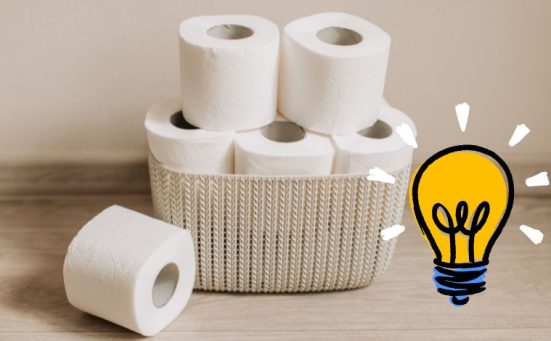
Washing Machine Leaves Gunk On Clothes? (here’s why & what to do)
Ever wondered why there’s gunk on your clothes after washing them? It’s not just annoying, it’s baffling, especially after a wash cycle that’s supposed to clean them!
This frustrating issue can be due to a variety of reasons: overuse of powdered detergents, a clogged filter, or even just a dirty washing machine. The good news? The solutions are often simple, involving adjustments in product use and routine appliance cleaning.
Let’s look into some of these reasons and how you can tackle them, ensuring your clothes come out as clean and fresh – as they should be!
Reasons Why There’s Gunk On Your Clothes After Washing Them – And How To Stop It!
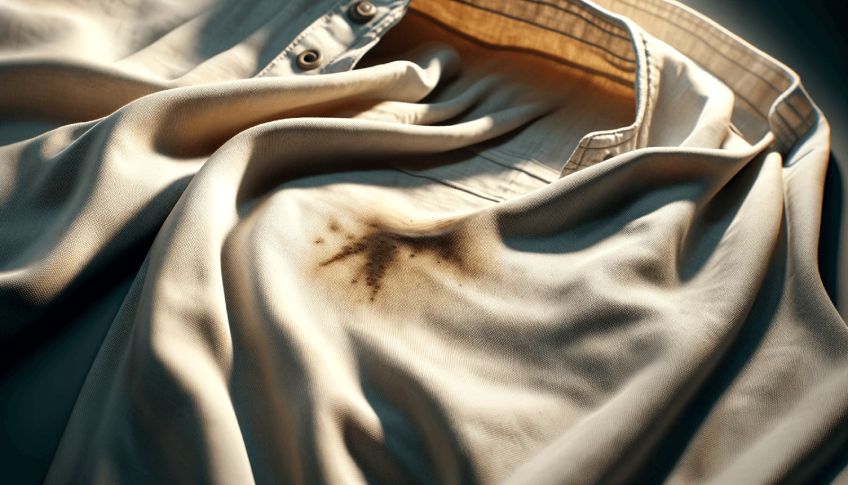
If you see gunk on your garments after removing them from the washer, here are the possible culprits:
A Dirty Washing Machine
The most common reason behind gunky clothing? A dirty washing machine. Over time, it’s normal for dirt, detergent, and fabric softener to build up, particularly in hard-to-reach areas like filters, seals, and drums.
At times, there can also be mould or mildew growth in your machine, which happens as it is a constantly damp environment in which fungi and bacteria thrive[1]. When using your washer, the buildup can flake off and stick to your clothes during a wash cycle, which is why they’re dirty after coming out of the machine.
What You Can Do:
Clean your washing machine!
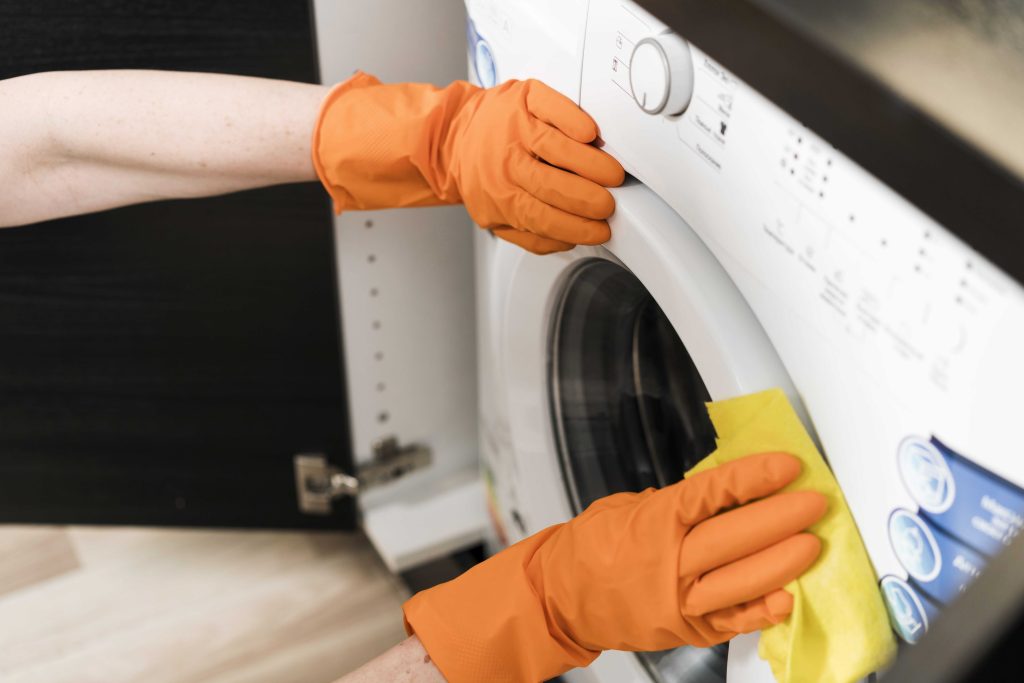
You don’t have to use a lot of expensive products, even white vinegar or bicarbonate of soda will do to remove the buildup. Make sure to use a clean sponge and soft-bristled brush to lightly scrub your washer, and once you’re done, leave the door ajar to ventilate the machine and discourage fungal growth.
NOTE: Read the manual for instructions on how to clean your machine properly! It will contain important details on how to remove removable parts, clean gunk from dispenser drawers, and especially if there’s a cleaning programme you can easily select to clean the inside of your machine.
Putting In Too Much Laundry
Overloading is a no-no. If you cram too much laundry into your machine, there won’t be enough room for clothes to move and get cleaned properly, causing gunk transfer from one garment to another.
What You Can Do:
Stick to your washing machine’s recommended capacity – usually between half and three-quarters full. For a standard 8KG washer in the UK, this means a load should be between 4KG to 6KG.
This allows detergent to penetrate fabrics and water to wash away excess product.
SEE ALSO: Washing Machine Capacity Guide (everything you need to know)
Using Too Much Laundry Products
Too much detergent or fabric softener is problematic. This is because it can leave residues on your clothes. This is especially the case if you’re using powdered variants of detergent, as there’s always the possibility that they’re not being fully dissolved.
Using more laundry products than are necessary will not make your garments cleaner and smell more fresh. Instead, you’re making it more difficult for the washer to remove the dirt on your garments, which makes them soapy after the cycle completes. This could also cause the fabrics to smell foul.
What You Can Do:
Laundry products are carefully designed to dissolve in a certain amount of water, so using more than recommended can lead to a buildup of undissolved products on your garments.
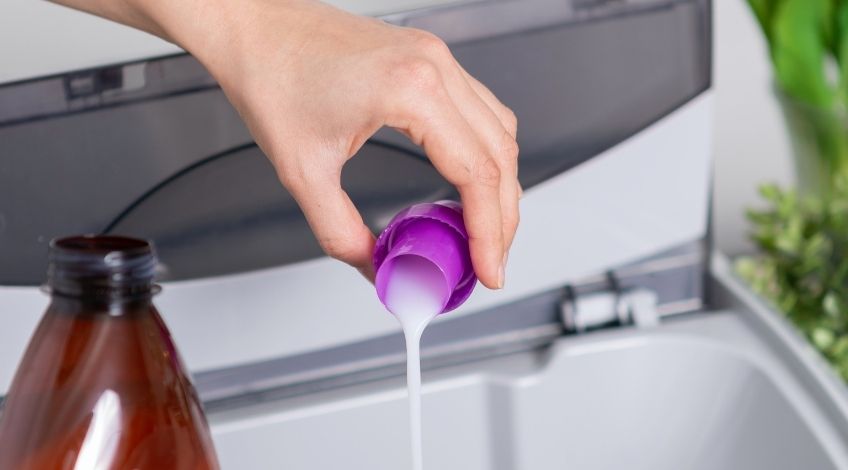
Make sure to follow the recommended measurements you can see on the packaging of the product. You can also read the user manual of your machine for a guide, depending on the amount of laundry you have to wash.
Always Doing Cold Washes
Cold washes, while energy-efficient, have a downside. Washing at temperatures below 60 degrees Celsius can result in product residue and bacterial growth, particularly with powder detergents.
What You Can Do:
Occasionally use a hot wash cycle to dissolve any residues.
If you only use cold washes for your clothes because you only clean delicate materials, you can always do empty washes using hot temps to wash out any buildup. It’s also a good idea to try out liquid detergent, as they do not leave as much residue and will make your clothes much cleaner in the long run.
SEE ALSO: What Temperature Is Considered A “Hot Wash”?
A Clogged Filter
A clogged filter can redeposit debris onto clothes. Washing machine filters catch lint, small objects, and other debris, which can cause gunk buildup if not cleaned.
What You Can Do:
To prevent mucky garments, clean your filter regularly. Most washers have removable filters, which means you can run yours under warm water, scrub it with a soft-bristled brush, and dry it before replacing it back in the machine.
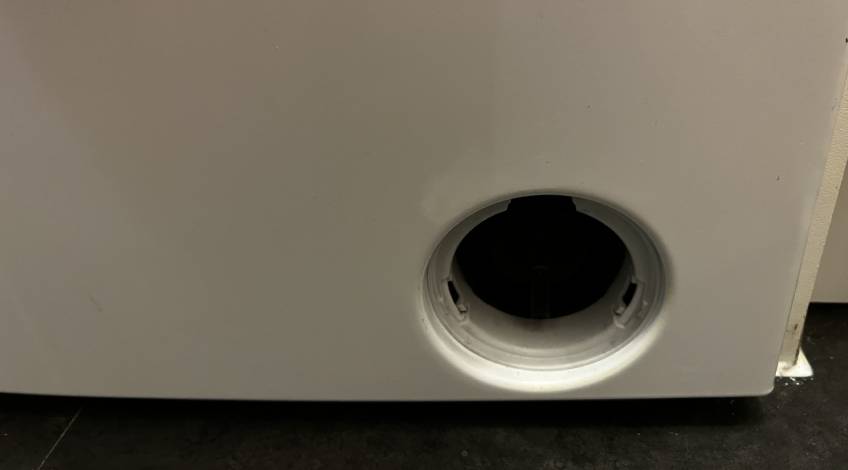
Using Hard Water
Hard water can be a sneaky problem. If you have hard water in your area, this could very well be the reason why your garments have gunk after removing them from the washer.
Hard water contains high levels of minerals like calcium and magnesium. These minerals can react with detergent to form a scummy residue, which can cling to fabrics. Hence, if your other appliances like a coffee maker or dishwasher have limescale in them, chances are, the same thing is happening to your washing machine.
What You Can Do:
If you can have a water-softening system installed, this can definitely solve your problems regarding using hard water.
However, since they can be quite expensive and a hassle to install, you can always run a regular empty hot wash cycle to remove mineral buildup. Add a cup or two of white vinegar and you’ll get better results.
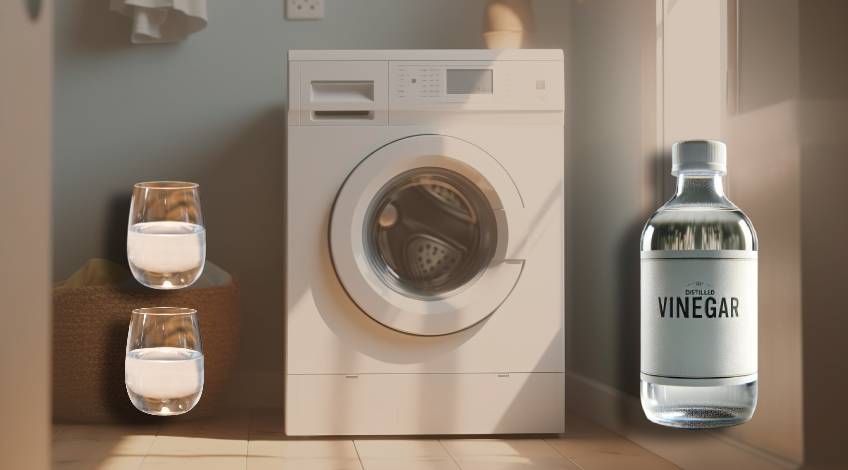
Washing Greasy Garments
Greasy clothes can transfer oil and grime to your machine and other clothes. This is particularly common in households where someone works with cars or machines.
What You Can Do:
Pre-treat stained and greasy clothes and fabrics before putting them in the washer. You can do this by soaking them in a basin with detergent, or by scrubbing greasy spots with a commercial stain remover.
A Quick Recap:
To keep your clothes free from unwanted gunk, here’s what you need to remember:
Have A Regular Cleaning Schedule
At least once a month, perform a cleaning session on your washing machine. Run a hot wash cycle with a washing machine cleaner or white vinegar to dissolve any buildup.
Avoid Underloading and Overloading
Make sure to only fill your washing machine to the recommended level. Always remember, use at least half but not more than three quarters of your washing machine’s capacity.
Measure Your Laundry Products
Stop overusing laundry products. Follow the instructions on the machine’s user manual, or the suggested amount based on the packaging of the detergent or fabric softener. One good alternative to fabric softeners is white vinegar, which is an eco-friendly product with no harmful chemicals.
Mix Up Wash Temperatures
If you can use hot washes on your clothes with hardy fabrics, do so. Just make sure that you are properly reading their care labels to avoid damage or shrinking your clothing. Of course, always use cold washes on your delicate fabrics.
Run empty hot washes at least once a month to remove mineral and residue buildup.
Pre-treat Dirty And Stained Clothes
Always pre-treat soiled and greasy garments before putting them in the washer with your other clothing. This way, you’ll have an easier time cleaning your clothes, and also prevent spreading bacteria on your other garments.
Keep Your Clothes And Machine Free From Gunk
Keeping your clothes clean and free from gunk after washing doesn’t have to be rocket science.
By understanding these common causes and implementing these simple fixes, you can ensure your clothes come clean and fresh out of the wash!
Do you have tips to share? Leave a comment below!
Frequently Asked Questions
Your washing machine might be leaving sludge on your clothes due to a buildup of detergent, fabric softener, or dirt within the machine. Issues like a dirty filter or using too much laundry product can also contribute to this messy problem.
To remove residue buildup from your washing machine, try using natural cleaners like white vinegar or bicarbonate of soda. Gently scrub with a soft-bristled brush and sponge, focusing on areas like seals, filters, and the drum. Remember to consult your machine’s manual for specific cleaning instructions.
Removing detergent buildup from clothes can be done by rewashing them without adding extra detergent. For persistent residue, soaking the clothes in a mixture of warm water and white vinegar before washing can help dissolve the buildup.
To clean your washing machine naturally, use a solution of white vinegar or bicarbonate of soda. Run an empty hot wash cycle with either of these natural cleaners. This method is effective in removing grime and freshening up your machine.
Ideally, you should clean your washing machine at least once a month. This helps to prevent buildup of residue and keeps your machine running efficiently, ensuring your clothes come out clean and fresh.
Also, follow us on Pinterest ...


